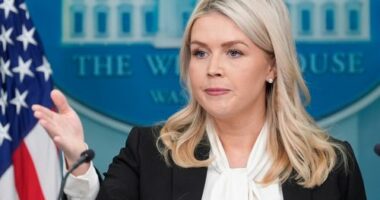Share this @internewscast.com
Key Points
- India carried out missile strikes on Pakistan and the region of Kashmir controlled by Pakistan on Wednesday, resulting in at least 31 deaths.
- Pakistan has rejected India’s claims of involvement in the April 22nd attack in Kashmir under Indian administration.
- Global leaders have called for restraint between the two nuclear-equipped countries.
However, experts suggest that a full-scale war is unlikely due to the economic pressures both nations are experiencing.

People are seen gathering around debris from an unidentified military aircraft that crashed near Srinagar in Indian-administered Kashmir. Source: Getty / Saqib Majid
India claimed the strikes — — were in response to the 22 April attack in Pahalgam, a popular tourist town in Indian-administered Kashmir, which left 25 Indians and one Nepali national dead.
India has dismissed these allegations, labeling them as “propaganda”, and stated that the circulating images of aircraft remains are “old”, originating from a 2021 crash.
Will they, won’t they?
“India’s defence budget is at least eight times the size of Pakistan’s defence budget. So, Pakistan is not going to achieve anything by engaging in a full-scale war with India at this stage,” he said.
“That’s a positive because they’re at least talking, so there’s probably less risk that we see things escalate beyond this point,” Hall said.
How did India and Pakistan get to this point?
India and Pakistan went on to fight two full-scale wars — in 1965 and 1971 — and a limited war in 1999.

Source: SBS News
Cross-border attacks have taken place in 2016 and 2019, but Hall says this time, they’ve been much bigger.
Since 22 April India has announced several measures to reduce its ties with Pakistan, including suspending a water access treaty and closing its only operational land border crossing.
The Indus Waters Treaty and accusations of ‘water terrorism’
“They say that Pakistan has benefited from this treaty but unless it takes concrete actions to control terrorist groups that operate in Pakistan’s territory and with the support of the Pakistan military, we can essentially restrict water supply to them.”

The Indus Waters Treaty dictates how Pakistan and India share water from several major rivers including the Indus. Source: AAP / EPA
What is the risk of nuclear escalation?
“The presence of nuclear weapons has actually restrained both countries — it’s changed the dynamic, and it means that it’s less likely that they would go to war on a large scale because they know that could then escalate to a nuclear exchange.”
What role could world powers play?
“The US used to be the key military supplier of Pakistan and provided billions of dollars in aid — military and civilian — after the September 11 attacks in New York,” Taneja said.











